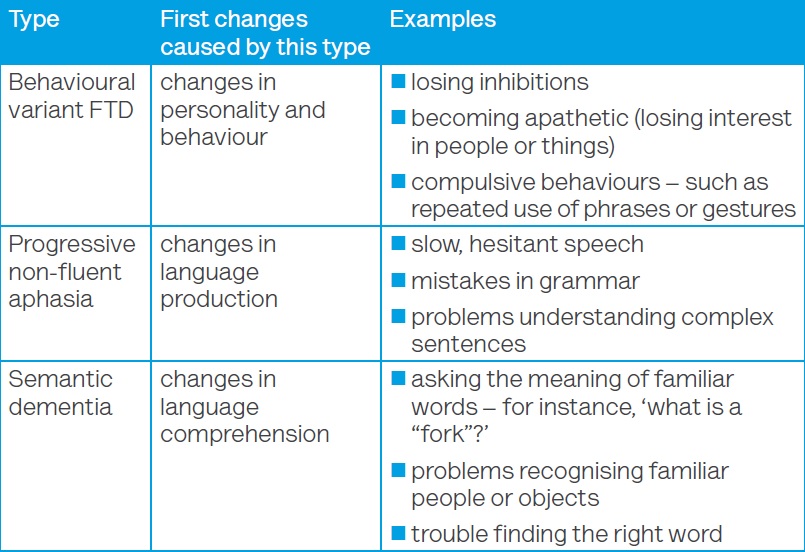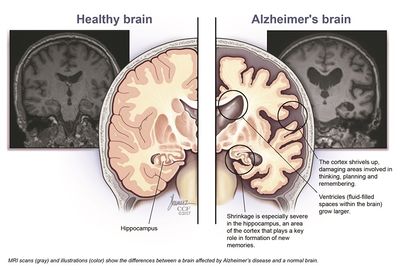What Are the Causes Behind Vascular Dementia?
What Are the Causes Behind Vascular Dementia?
Blog Article
Recognizing the Impact of Mental Deterioration on Daily Life and Caregiving
Mental deterioration affects everyday life in extensive methods, impacting not just those detected but likewise their caretakers. As cognitive decline proceeds, you might observe adjustments in communication and routine that obstacle both parties.
The Stages of Mental Deterioration and Their Effects on Every Day Life
As you browse the journey of dementia, comprehending its stages can substantially influence just how you take care of daily life. Dementia usually advances with three main stages: early, center, and late.
During the middle phase, you'll experience extra recognizable cognitive decrease. Daily jobs may become difficult, and maintaining your freedom may call for adjustments. Using suggestions and streamlining your setting can aid.
In the late stage, people usually require significant aid with day-to-day tasks. Planning for care comes to be important, concentrating on comfort and quality of life. By understanding these phases, you're far better furnished to respond proactively, guaranteeing you or your enjoyed one can navigate the challenges with self-respect and elegance.

Modifications in Interaction and Social Communication
Just how do modifications in communication affect your daily communications as mental deterioration progresses? As mental deterioration breakthroughs, you may observe that easy conversations come to be tough.
You may locate it less complicated to attach with these means rather than counting exclusively on talked language. Paying attention skills can likewise alter; you might locate it more challenging to remember or adhere to conversations what was simply stated (Vascular Dementia). This can cause misconceptions or feelings of seclusion
Encouraging persistence and creating a helpful atmosphere can assist. Participating in tasks that cultivate connection, like music or art, can boost social interactions. Bear in mind, maintaining connections is still feasible; it's practically adjusting to brand-new ways of interacting.
Influence On Daily Routines and Activities
While maneuvering everyday routines, you'll likely notice that tasks you once completed effortlessly ended up being much more difficult as mental deterioration progresses. You may discover yourself failing to remember steps in familiar routines or having a hard time to recall where you put products.
Adapting your setting can aid; for instance, labeling things or utilizing checklists can streamline tasks. Involving in repeated, organized tasks can likewise give convenience and a sense of accomplishment. Bear in mind, it's alright to ask for help.
Psychological and Behavior Obstacles
Steering via everyday routines can cause not just sensible difficulties, however behavior and also psychological ones. You might notice modifications in state of mind, such as enhanced anxiety or disappointment, which can stem from confusion or trouble in completing jobs. As you navigate these moments, it is vital to acknowledge that your enjoyed one may share their sensations via habits like anxiety or withdrawal.
These emotional actions can be unpredictable and may occur without caution, leaving you both feeling overwhelmed. You could find that familiar settings or routines can assist lower anxiousness, however keeping patience becomes considerable. It is important to verify their sensations, even if you don't completely recognize them.
The Role of Caregivers in Sustaining People With Dementia
As a caretaker, you play an essential function in supplying psychological assistance for individuals with dementia. Establishing everyday treatment regimens can create a sense of stability and comfort, assisting to ease their anxiety. By comprehending their demands and using effective techniques, you can considerably boost their top quality of life.
Psychological Assistance Strategies
When caring for a person with dementia, comprehending the emotional landscape is crucial for offering effective assistance. Simple motions, like holding their hand or preserving eye call, can produce a feeling of safety and security. Ultimately, don't forget to take treatment of your own emotional demands; seeking assistance for yourself can boost your ability to care for them.
Daily Treatment Routines
Establishing everyday treatment routines is necessary for supplying security and comfort to people with dementia, as these regimens can aid decrease complication and anxiety. You can begin by outlining a constant timetable for meals, activities, and remainder. This predictability helps your liked one feel extra protected and involved.
Incorporate familiar jobs, like folding washing or watering plants, which can evoke positive memories and promote a feeling of accomplishment. Use aesthetic signs, such as lists or calendars, to assist them via the day.
Be flexible, though; adapt regimens as required based on their mood or energy levels. Vascular Dementia. Keep in mind, your persistence and understanding are essential in maneuvering their changing requirements, guaranteeing they really feel supported and valued throughout their life
Developing a Safe and Comfortable Living Environment
Creating a comfortable and risk-free living setting is necessary for people with click here for more mental deterioration. You'll intend to make home safety and security modifications that reduce risks and guarantee knowledge to give a feeling of comfort. By concentrating on these facets, you can assist develop a room that sustains both security and health.
Home Safety And Security Alterations
As you browse the challenges of mental deterioration, making home safety alterations can considerably enhance convenience and protection. Label vital areas, such as the washroom and kitchen area, with clear indicators to help with alignment. These modifications not just promote security yet likewise urge independence, permitting your loved one to feel even more at ease in their setting.
Comfort and Experience
After making certain a safe atmosphere with necessary modifications, cultivating comfort and experience is vital for people with dementia. Start by customizing their room. Usage familiar colors, decors, and pictures that evoke delighted memories. A favored covering or chair can provide a sense of safety. Preserve a regular routine to help them feel grounded and minimize anxiousness. Simple, familiar dishes can also develop a reassuring environment. Maintain paths clutter-free and clear to stay clear of confusion. Integrate soft lighting, as intense lights can be disorienting. Consider adding soothing scents, like lavender, to advertise relaxation. Participating in acquainted tasks, such as listening to music or gardening, can improve their feeling of belonging, making their living atmosphere a true haven.
Strategies for Reliable Caregiving and Assistance
While navigating the challenges of dementia care can really feel frustrating, carrying out efficient strategies can substantially boost both the caretaker's and the individual's everyday experience. Start by developing a routine; predictability helps in reducing stress and anxiety for both you and your loved one. Usage clear, easy interaction-- direct inquiries and short sentences can prevent complication.

Do not forget to care for on your own; routine breaks and get in touch with support system. Sharing experiences with others in comparable circumstances can provide beneficial understandings and psychological relief.
Lastly, continue to be individual and versatile. Dementia can bring uncertain changes, so adjusting your strategy is crucial. By utilizing these techniques, you can foster an extra favorable environment that profits both you and your liked one.
Often Asked Questions

What Are the Various Sorts Of Mental Deterioration?
You'll locate numerous kinds of dementia, consisting of Alzheimer's, vascular mental deterioration, Lewy body mental deterioration, and frontotemporal mental deterioration. Each kind impacts memory and cognitive feature in a different way, so understanding the distinctions is important for proper diagnosis and care.
Just How Can I Aid A Person With Early-Stage Mental Deterioration?
You can assist a person with early-stage dementia by being patient, offering assistance, and motivating them to involve in activities they take pleasure in. Keeping routines consistent and keeping open interaction can likewise make a considerable difference in their day-to-day live.
Exist Financial Resources Available for Dementia Care?
Yes, there are funds readily available for mental deterioration care. You can discover federal government support programs, nonprofit companies, and insurance policy alternatives. It's likewise wise to speak with neighborhood firms for particular this page resources customized to your circumstance.
What Lawful Considerations Should Caregivers Be Mindful Of?
As a caregiver, you ought to consider power of lawyer, healthcare proxies, and guardianship regulations. It's vital to comprehend the lawful rights and duties you hold, ensuring your liked one receives proper care and defense.
How Can I Handle Caregiver Tension?
You can deal with caregiver stress and anxiety by prioritizing self-care, looking for support from buddies or teams, setting realistic expectations, taking breaks, and exercising relaxation strategies. Remember, your wellness matters equally as long as the person you're taking care of.
Recognizing the Impact of Mental Deterioration on Daily Life and Caregiving.
As you browse the journey of dementia, recognizing its stages can markedly impact exactly how you take care of daily life.While steering daily routines, you'll likely observe that jobs you once completed easily ended up being extra challenging as dementia advances.Developing day-to-day care routines is necessary for supplying security and convenience to individuals with dementia, as these routines can help minimize complication and anxiousness.While steering the challenges of mental deterioration treatment can really feel frustrating, implementing effective techniques can considerably boost both Resources the caretaker's and the person's day-to-day experience.
Report this page